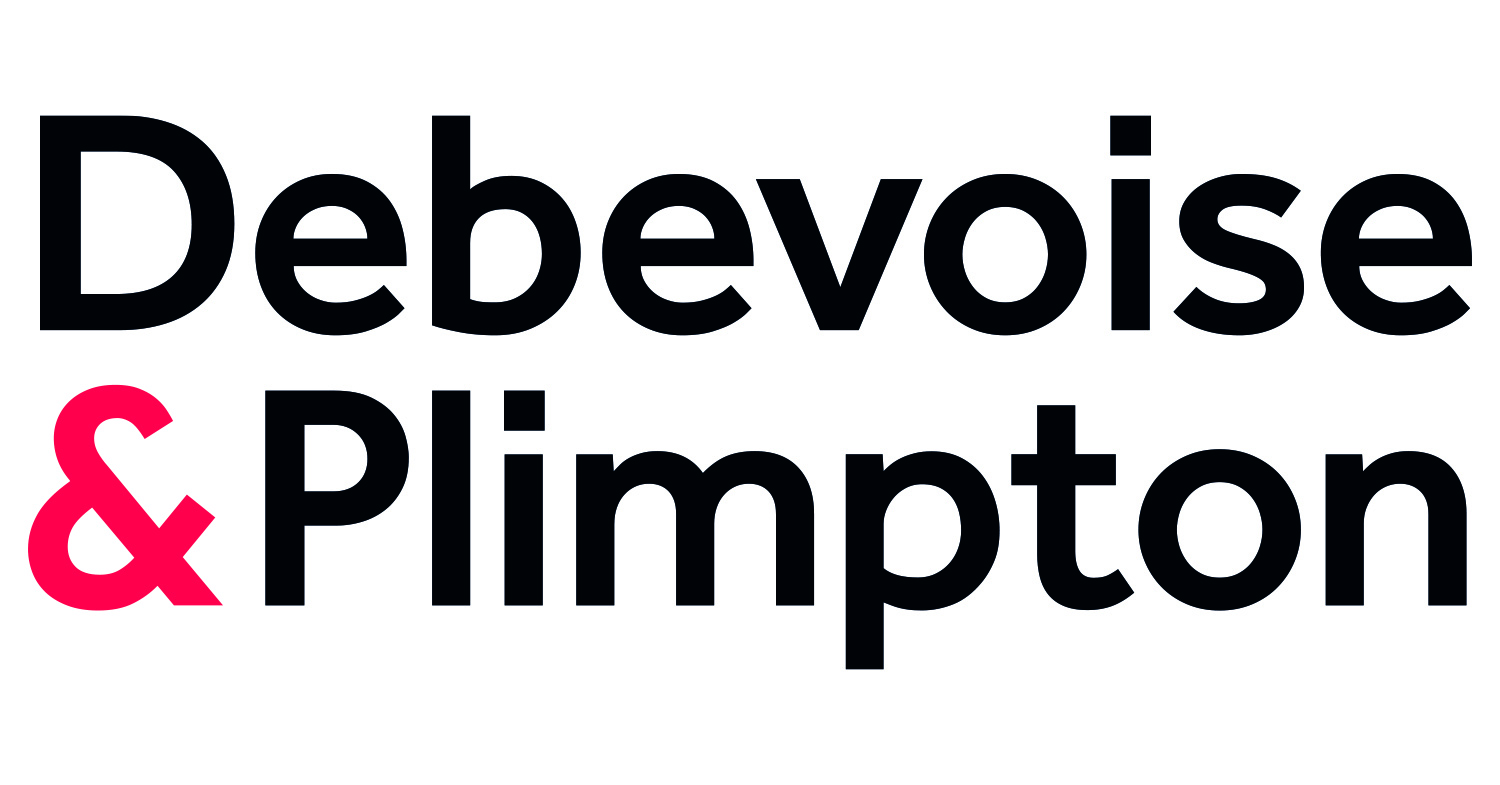Key Takeaways:
- As Hong Kong gradually emerged from the effects of Covid-19 over the past year, the financial regulators, in particular the Securities and Futures Commission (the “SFC”), have also become increasingly active.
- In recent months, there has been an uptick in the number of investigations initiated by the SFC. Insider dealing, internal control failures and corporate misconduct remain high on the SFC’s list of enforcement priorities, whilst it continued to step up its efforts to crack down on ramp-and-dump syndicates. To this end, the SFC has worked closely with other regulators in Hong Kong, Mainland China and overseas to conduct joint operations, training and other activities, and is expected to continue doing so going forward. All in all, although enforcement by the SFC still has some way to go before it reaches pre-Covid levels, the trend is certainly an upward one.
- Significant regulatory developments were also seen in the emerging areas of ESG and virtual assets, and initiatives to reform or refine long standing regulations and practices relating to insider dealing and market soundings were introduced. Further, a recent Court of Appeal decision on letters of no consent also has significant implications from an enforcement perspective.
- In this review, we delve into some of these key financial regulatory developments in 2023 and highlight potential implications that are vital to managing risks and meeting regulatory expectations.
As Hong Kong emerged from the Covid-19 slumber over the past year, the financial regulators, in particular the Securities and Futures Commission (the “SFC”), have also become increasingly active.
In 2023, the SFC initiated and concluded more than 10 consultations; conducted several high-profile joint operations with the Hong Kong Police Force (the “Police”), the Independent Commission Against Corruption (the “ICAC”) and the Accounting and Financial Reporting Council (the “AFRC”); stepped up enforcement action to combat internal control failures, insider dealing, ramp-and-dump and other types of misconduct; and published a flurry of new circulars and guidelines. Significant regulatory developments were also seen in emerging areas, such as ESG and virtual assets, and efforts were made to reform or refine long standing regulations and practices relating to insider dealing and market soundings.
In this review, we delve into some of these key developments in 2023 and highlight potential implications that are vital to managing risks and meeting regulatory expectations.
Enforcement Trends
After a slow year in 2022/23, the past 11 months or so have seen a rebound in SFC enforcement activities. In the six months ended 30 September 2023, the SFC initiated 94 new investigations, which represents a year-on-year increase of 40.3% and is already equivalent to 67% of the number of investigations initiated in 2022/23. Although enforcement by the SFC still has some way to go before it reaches pre-Covid levels, the trend is certainly an upward one.
In terms of enforcement focus, the SFC has continued to home in on the traditional areas of insider dealing and corporate misconduct. In December 2023, the Market Misconduct Tribunal (“MMT”) sanctioned Mayer Holdings Limited and nine of its former senior executives, who were found to be late in disclosing inside information as required under the Securities and Futures Ordinance (“SFO”). The sanctions were made after the Court of Appeal had ordered, upon allowing an appeal against an earlier determination by the MMT, that the matter be remitted to the MMT for reconsideration. In May 2023, the SFC also commenced proceedings in the MMT against a former bank manager for alleged insider dealing in company shares relating to a privatisation transaction he had worked on. Further, the SFC announced in August 2023 that it would broaden the scope of the insider-dealing provisions of the SFO (see discussion below). These indicate that insider dealing remains high on the SFC’s list of enforcement priorities.
The SFC continues to expect a high standard of compliance and good systems of risk management and internal controls from financial institutions. In July 2023, the SFC reprimanded and fined Changjiang Asset Management (HK) Limited (“Changjiang”) HK$3.4 million for regulatory breaches and internal control failings related to the company’s client assets. The failures include under-segregation of client money to the extent of HK$300 to HK$1.05 million on multiple occasions and significant delays in the provision of statements of accounts to clients. In December 2023, the SFC reprimanded and fined Ruifeng Securities Limited (“RSL”) HK$5.2 million for failures in its fund management activities and account opening procedures. The SFC found that, among others, RSL failed to have sufficient risk management practices in place to protect its fund from exposure to excessive risks and failed to make adequate information disclosure about its investment holdings. The significant fines indicate that internal controls and good risk management systems remain front of mind for the SFC. Financial institutions should stay vigilant, review their operational and data risk management systems regularly, and ensure a high level of compliance with its internal control systems when dealing with client money.
On the issue of corporate misconduct, in April 2023, the SFC commenced legal proceedings under s.214 of the SFO in the Court of First Instance (“CFI”) to seek disqualification orders against seven former directors and a former chief financial controller of China Candy Holdings Limited for knowingly permitting, acquiescing or turning a blind eye to the creation of falsified bank and accounting records to cover up the overstatement of the company’s cash and bank balances. In two other s.214 proceedings concerning Luxey International (Holdings) Limited and National Agricultural Holdings Limited respectively, the CFI granted disqualification orders against a total of five directors, including two independent non-executive directors (“INEDs”), for misconduct in a corporate acquisition and breach of directors’ duties. These cases show that the SFC takes directors and senior management failures very seriously and are committed to hold directors personally accountable for their actions or non-actions. Directors need to be proactive and inquisitive in understanding all aspects of the company’s business, operations and financials, and take actions to investigate and address any red flags or concerns. In this regard, INEDs should be mindful that they owe the same duties to the company as executive directors do.
In line with recent enforcement trends, the SFC has also stepped up enforcement efforts against ramp-and-dump syndicates. In 2023, the SFC brought charges against no less than 24 suspects for alleged ramp-and-dump stock investment schemes and money laundering activities. To date, three suspected core members of the ramp-and-dump syndicate have been charged under section 300 of the SFO and sections 159A and 159C of the Crimes Ordinance (Cap 200), and the case against two of them was transferred to the District Court earlier this month, presumably with the SFC looking to seek a higher sentence against these individuals, which is beyond the sentencing powers of the Magistrates Court.
At the same time, the SFC has also continued to work closely with other law enforcement agencies and regulators in Hong Kong, Mainland China and overseas to combat market misconduct, maintain market resilience and mitigate serious harm to the markets. On a regional level, in November 2023 the SFC held an in-person meeting and joint training with the China Securities Regulatory Commission, during which the two regulators discussed sharing of investigation progress on important cases involving cross-boundary investigatory assistance and sharing of experience in anti-money laundering related work. On a local level, the SFC issued the first joint statement with the AFRC in July 2023, expressing concern over listed companies channeling company funds to third parties pursuant to dubious loans, advances, prepayments, deposits or some other pretext (access our client update here to find out more). In October 2023, the SFC also conducted the first tripartite operation with the ICAC and the AFRC involving two listed companies on suspicion of falsifying corporate transactions totaling HK$193 million. Such close collaboration and cooperation are likely to continue going forward, as this is one of the SFC’s strategic priorities for 2024–2026.
In this regulatory environment, stakeholders should stay up to date on the latest guidance and consultations published by the SFC, scrutinise their internal controls and systems to identify and remedy potential deficiencies, and enhance their internal work flows and procedures if necessary.
Consultation Paper on the Proposed Guidelines for Market Soundings
In October 2023, the SFC invited comments from market participants and other interested parties on a set of proposed guidelines for market soundings (the “Guidelines”). The Guidelines were proposed for the first time with a view to reducing divergence in practices and improving alignment across the industry.
The SFC was also looking to introduce new requirements under the Guidelines which depart significantly from established market practices. The most controversial of these new requirements is undoubtedly the proposal for the Guidelines to apply to communication of any non-public information (“NPI”) (i.e., not just material non-public information (“MNPI”)) during market soundings, which means that the myriad of additional obligations (e.g., confidentiality, restriction of use, corporate governance, internal controls, etc.) that normally only apply when MNPI is passed on or received during market soundings will apply even if only non-material NPI is communicated. This could potentially lead to various practical difficulties.
For instance, the SFC has proposed adopting the “certainty” test as a substitute for the existing “materiality” test as a means of determining the applicability of the additional obligations. The “certainty” test dictates that the additional obligations shall apply where the potential seller and buyer (or intermediaries acting on their behalf) communicate regarding an underlying transaction that is sufficiently “certain”, which in turn depends on a host of factors, such as whether the seller has formally mandated that the intermediary acting on his behalf gauge investor appetite, whether the seller has shared with that intermediary any particulars about the possible transaction, etc. As only the sell-side is usually privy to such information, the “certainty” test potentially puts those on the buy-side at risk of contravening the Guidelines through no fault of their own when the sell-side fails to disclose (or fully disclose) to them such information, which is exacerbated by the fact that the Guidelines do not apply to offshore brokers not regulated by the SFC, who therefore have no reason to disclose such information when conducting market soundings.
Another likely consequence of the Guidelines is that those on the buy-side may be denied a fair opportunity to make an informed decision on whether to participate in the underlying transaction of a market sounding or forego that opportunity in exchange for the ability to continue trading the relevant securities. Whilst buy-side intermediaries are afforded this opportunity under the current arrangement where they would not be restricted from trading until after they receive MNPI, the Guidelines will bar trading once there is communication of any NPI, which prevents those on the buy-side from receiving the necessary NPI (e.g., the location and business of the issuer, the nature of the transaction, etc.) to make an informed decision on whether to participate in the underlying transaction.
The consultation on the Guidelines closed on 11 December 2023, but the SFC has yet to publish its conclusions, and there is no indication on when they will be published. When that happens, it is expected to reveal wide-spread concern amongst market participants over the Guidelines, but it remains to be seen whether that will be sufficient to persuade the SFC to re-consider, or even withdraw, the Guidelines.
Letter of No Consent Remains Constitutional
The SFC has various means of freezing assets pending investigation and/or legal proceedings, including by applying for injunctive relief under section 213 of the SFO, issuing a restriction notice under sections 204 and 205 of the SFO and triggering the issue of a letter of no consent (“LNC”) by the Joint Financial Intelligence Unit (the “JFIU”).
Under the Organised and Serious Crimes Ordinance (the “OSCO”), it is an offence for any person to deal with any property which he knows or suspects is crime proceeds, except where he deals with such property after having reported his knowledge or suspicion to an “authorised officer” (usually done by submitting a suspicious transaction report (“STR”) to the JFIU) and having received consent from the authorised officer to do so, or he voluntarily makes such a report as soon as reasonably practicable after dealing with the property. This forms the basis for the LNC, which is issued in response to an STR, informing the person who made the report that he does not have consent to deal in the property in question. The LNC therefore operates as a de facto injunction over the property, as the recipient of the LNC would typically refrain from dealing with the property for fear of committing an offence.
In 2021, a legal challenge was mounted against the LNC regime on the basis that it was ultra vires, not prescribed by law and amounted to disproportionate interference with property rights as enshrined under the Basic Law. The CFI found for the applicants and held that the LNC regime was unconstitutional. However, in April 2023, the Court of Appeal (the “CA”) overturned the CFI’s decision and took the view that the issuing of an LNC was neither ultra vires nor improper as that did not involve the Police restraining the person in question from dealing with the property. Instead, the recipient of the LNC makes his own conscious decision not to deal with the property to avoid exposure to criminal liability under the OSCO.
In light of this, we can expect to see the LNC re-emerge as one of the means employed by the SFC to “freeze” assets pending investigation and/or proceedings. Given the CA’s view that the LNC does not carry the force of law (as it does not legally compel the recipient to freeze the assets in question), banks and licensed corporations should ensure that their terms and conditions allow them to “comply” with the LNC and not deal with the property in question in the face of clients’ instructions to the contrary.
ESG Developments
In April 2023, the Stock Exchange of Hong Kong Limited (the “HKEx”) published a consultation paper proposing to amend the Listing Rules to mandate that all listed companies in Hong Kong provide enhanced climate-related disclosures (the “Disclosure Amendments”) from 1 January 2024 onwards. The Disclosure Amendments were intended to align with the IFRS S2 Climate-related Disclosures exposure draft published in March 2022 by the International Sustainability Standards Board (the “ISSB”). However, as the ISSB subsequently published the finalised IFRS Sustainability Disclosure Standards in June 2023 and indicated that it would publish an adoption guide in due course to assist jurisdictional regulators with their implementation considerations and to advise them on scalability and phasing-in measures, the HKEx postponed the implementation date of the Disclosure Amendments to 1 January 2025 as it intended to take the adoption guide into account when finalising the Listing Rules Amendments. This is a welcome development as the extended timeline would allow listed companies more time to become familiarised with the new mandatory climate-related disclosure requirements.
In line with the global trend of central banks in assessing their climate resilience, the Hong Kong Monetary Authority (the “HKMA”) has been conducting the second round of climate risk stress test (“CRST”) exercise for a selected group of licensed banks and deposit-taking companies, which is expected to be completed in June 2024. Compared to the pilot exercise in 2021, this second round of CRST exercise contains a new five-year scenario, a broader range of climate-related variables and detailed specific reporting standards. The CRST exercise is intended to help the participants better assess their exposures to climate risks, strengthen their capabilities and formulate strategic responses.
On 29 November 2023, the HKMA published its expected standards on green and sustainable investment product selling for registered institutions (“RIs”), i.e., banks licensed to conduct regulated activities under the SFO RIs, in an effort to manage greenwashing risks. The expected standards apply to RIs that classify or market their investment products as green and sustainable. The new requirements include ongoing and thorough product due diligence, consulting customer’s sustainability preference, accurate disclosures, robust governance and controls, ESG training for staff, and prudent book-building activities. RIs are required to review these standards and ensure compliance no later than 29 November 2024.
In addition, the SFC recently announced its three-year strategic priorities, one of which is to lead financial market transformation through technology and ESG and bolster Hong Kong’s position as a leading sustainable finance hub.
These developments underline the intention of the Hong Kong financial regulators to continue to refine the ESG regulatory framework and develop strategic initiatives to help businesses take advantage of opportunities, manage climate risks and meet their ESG needs and goals. To meet the ever-increasing regulatory expectations, stakeholders in Hong Kong should keep themselves updated on the applicable requirements and regulatory standards and ensure that they have adequate procedures, resources and capabilities to remain compliant.
New Licensing Regime for Virtual Asset Trading Platforms
On 1 June 2023, the SFC’s new licensing regime for virtual asset trading platforms (“VATPs”) under the Anti-Money Laundering and Counter-Terrorist Financing Ordinance (Cap. 615) came into effect, accompanied by a circular setting out the relevant regulatory guidelines for VATP operators. This followed the SFC’s consultation conclusion on proposed regulatory requirements for virtual asset trading platform operators licensed by the SFC, which was published on 23 May 2023.
The new regime requires all VATPs (i) carrying on a business of operating a virtual asset exchange in Hong Kong, (ii) marketing their services (including through an intermediary) in Hong Kong or (iii) performing a regulated function on behalf of a platform operator to be licensed by the SFC. This means that trading of non-security tokens on VATPs is now regulated under the new VATPs regime, which operates alongside the SFO regime that regulates the trading of security tokens on VATPs. As the terms and features of a virtual asset may change over time, the SFC encourages VATPs to make application for dual licences under both the SFO regime and the VATPs regime to avoid non-compliance.
Platform operators trading virtual assets with “meaningful and substantial presence” in Hong Kong before 1 June 2023 may benefit from a 12-month transitional period to ensure compliance with the new regime (the “Deeming Arrangement”). Platform operators that do not qualify for the Deeming Arrangement should ensure that they obtain SFC licences before trading in Hong Kong.
One notable aspect of the new regime is that it only covers virtual asset exchanges but not other service providers such as custodians or advisors. However, with the Hong Kong government advocating and promoting Hong Kong as an ideal place for fintech businesses to grow, expansion of the virtual asset regulations in Hong Kong to cover other types of service providers is likely to be just around the corner.
Amendments to Broaden Insider-Dealing Provisions in the SFO
Following a 12-month consultation period, the SFC published its consultation conclusions on 8 August 2023 on proposed amendments to enforcement-related provisions of the SFO.
The SFC concluded that it would proceed with the proposal to broaden the scope of the insider-dealing provisions of the SFO to cover both (i) insider dealing perpetrated in Hong Kong with respect to securities listed on overseas stock markets or their derivatives and (ii) insider dealing perpetrated outside of Hong Kong which involves any securities listed on the HKEx or their derivatives.
The current insider-dealing regime under the SFO is limited to prohibiting insider dealing with respect to the listed securities or derivatives of a company that is listed in Hong Kong. There is no express provision prohibiting insider dealing in Hong Kong-listed securities or their derivatives outside of Hong Kong. The proposed amendment, which has yet to be enacted through the legislative process, will address this loophole by providing the SFC with the ability to tackle cross-border securities crimes and market misconduct.
On the other hand, following concerns raised by the majority of the respondents to the consultation, the SFC decided to put on hold the other two proposals in the consultation, namely, (a) to extend the SFC’s powers to apply for various forms of relief against a regulated person subject to disciplinary action by the SFC for misconduct or lack of fit and properness and (b) to align the ambit of the professional investor exemption in section 103(1) of the SFO with the original legislative intent.
For a more detailed analysis, please see our previous Client Updates on the consultation and on its conclusions.
This publication is for general information purposes only. It is not intended to provide, nor is it to be used as, a substitute for legal advice. In some jurisdictions it may be considered attorney advertising.
Authors.

Gareth Hughes, Partner
ghughes@debevoise.com

Emily Lam, International Counsel
elam@debeovise.com

Samuel Fung, International Counsel
sfung@debevoise.com

Tiffany Wu, Associate
tlwu@debevoise.com


















